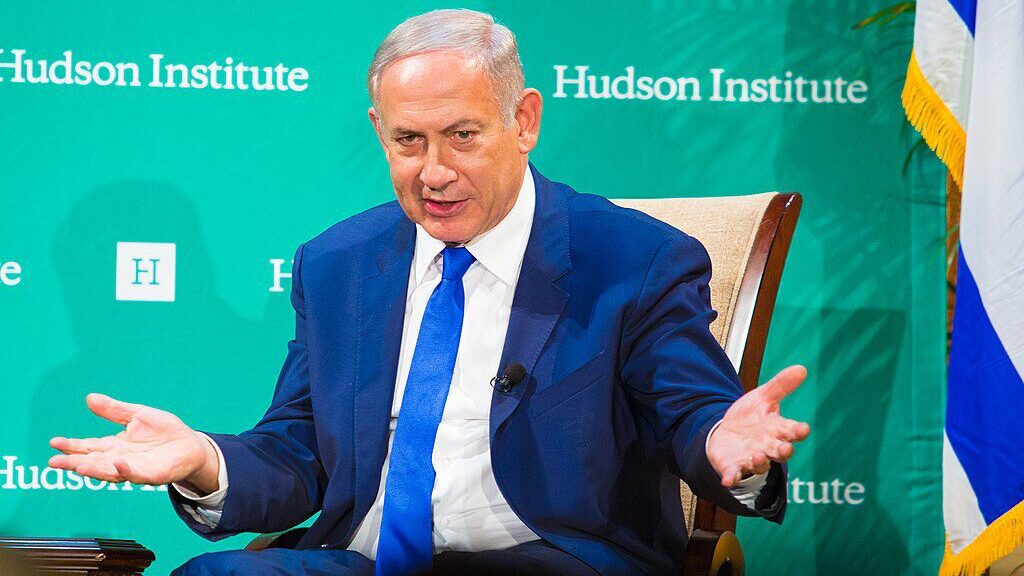
Benjamin Netanyahu
Photo: Hudson Institute, CC BY 2.0, via Wikimedia Commons
News sites around the world are today leading with reports of a possible Israel-Hezbollah ceasefire, after a joint statement from 12 Israeli allies called for a 21-day pause in fighting “to provide space for diplomacy towards the conclusion of a diplomatic settlement.”
But despite claims such a deal could be struck within “hours,” a spokesman for Israeli prime minister Benjamin Netanyahu clarified that he has “instructed the IDF [Israel Defence Forces] to continue the fighting with full force, and according to the plans presented to him.”
The spokesman added that “the fighting in Gaza will continue until all the goals of the war are achieved,” too.
The willingness of Israel’s international critics to push for a ceasefire now indicates their continuing loss of nerve at a time when the only democracy in the Middle East is facing an existential threat.
Israel Katz, who is serving as prime minister while Netanyahu is in New York to address the United Nations general assembly, later echoed that “we will continue to fight the Hezbollah terror group with full force until victory and the return of residents of the north to their homes safely.”
Jason Brodsky, author and policy director at the United Against Nuclear Iran non-profit, criticised Joe Biden’s administration as “disconnected from reality” for calling for a temporary ceasefire without mentioning Hezbollah.
Imagine releasing two statements calling for a temporary ceasefire between #Israel and #Lebanon as if the government of Lebanon has any agency and sovereignty without mention of #Hezbollah, which holds the power here. That's how disconnected from reality this sounds. pic.twitter.com/yrhl7Lgq0G
— Jason Brodsky (@JasonMBrodsky) September 26, 2024
U.S. senator Tom Cotton also asked on Twitter/X: “Where were the ceasefire demands when Hezbollah started this with thousands of missiles aimed at Israeli civilians?”
Israel continued to strike at Hezbollah in Lebanon overnight and into Thursday morning while diplomats gathered to work towards a ceasefire. It has been engaged in cross-border warfare with the terrorist group since the October 7th terror attacks, when Hezbollah initiated rocket attacks at Israel in support of Hamas.
Netanyahu will address the U.N. on Friday afternoon, with the world watching on for news of possible de-escalation.
